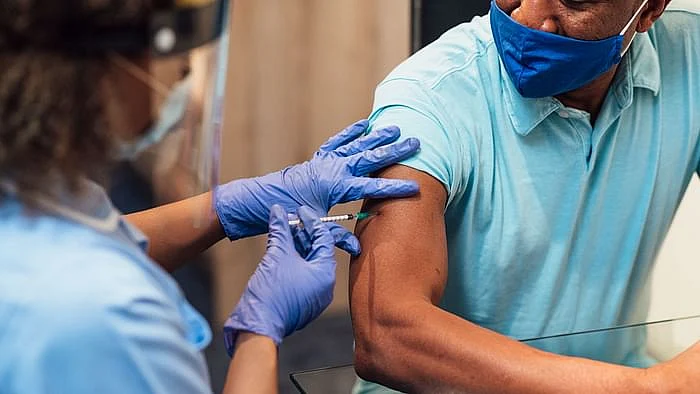
COVID Vaccine Safety: Can You Take Painkillers With the Vaccine?
Is it safe to take painkillers before you get the COVID vaccine? FIT asks experts.

advertisement
Starting Thursday, 1 April, COVID vaccines in India will be open to everyone over the age of 45, irrespective of comorbidities.
Although this move is a much-awaited one, especially considering the recent surge in COVID cases in the country, it is also marred with confusion and hesitancy.
A major reason for vaccine hesitancy in the country – and even the world over – has been the lack of clear information about the vaccines and frequent inconsistencies. And making the waters even murkier are the misleading, ill-informed social media posts that continue to spread misinformation.
One such claim is that, taking painkillers after getting the vaccine can prove fatal.
FIT speaks to Dr Suranjeet Chatterjee, internal medical specialist at Apollo hospital, New Delhi, and Dr Sumit Ray, head, critical care medicine, Holy Family Hospital, Delhi to find out if there is any truth to this, and if there are any other contraindications that we should know of.
Is it dangerous to take painkillers before getting vaccinated?
The straight answer? No. But is it recommended? Also, no.
Not Dangerous, but Still Not a Good Idea
Although it is safe to take Paracetamol, both Dr Suranjeet Chatterjee and Dr Sumit Ray do not advise taking it before the vaccine prophylactically.
For one, although there has been no evidence of it thus far, there is no saying "how it might affect the immunogenicity of the vaccine, so it’s best to avoid it, especially when it comes to anti-inflammatory drugs,” says Dr Chatterjee.
Secondly, it is ill-advised to take any medication unnecessarily.
“Why take a pain killer when you don’t need it?” says Dr Sumit Ray. “In general, taking painkillers without needing to is not advisable as it can have its own side effects. It can also damage your kidneys in the long run if you take too many.”
Not All Painkillers Are Equally Safe
Although there is no evidence to suggest that any medication combined with the vaccine can turn dangerous, Dr Suranjeet Chatterjee, holds his reservations when it comes to taking non-steroidal anti-inflammatory drugs (NSAIDs) such as Brufen, Disprin, Aspirin, and Voveran.
Although Dr Ray suggests that it is ideal to avoid them if possible. He says, it is safe to take if the fever turns out to be a persistent one.
He goes on to clarify, “Those who have kidney disease and other conditions for whom taking NSAIDs are contraindication, should definitely avoid them.”
Let the Vaccine Do Its Work
“Painkillers only suppress the symptoms (like fever) for 4-6 hours, after which they will return. So unless the fever is high or the pain is giving you trouble, it isn’t recommended. Especially not as a preventive measure,” says Dr Chatterjee.
Before Getting the Vaccine...
...know if you are allergic.
Both doctors strongly recommend letting your doctor, or the person administering the vaccine, know beforehand of any allergic reactions you may have had in the past to any medication.
Other than that, don’t let any underlying ailments such as heart conditions, diabetes, blood pressure keep you from taking the vaccine says Dr Chatterjee. “In fact, it is highly recommended that they do. The same goes for people on other medication like blood thinners,” he adds.
(This story was first published on FIT and has been republished with permission.)
- Access to all paywalled content on site
- Ad-free experience across The Quint
- Early previews of our Special Projects
Published: undefined